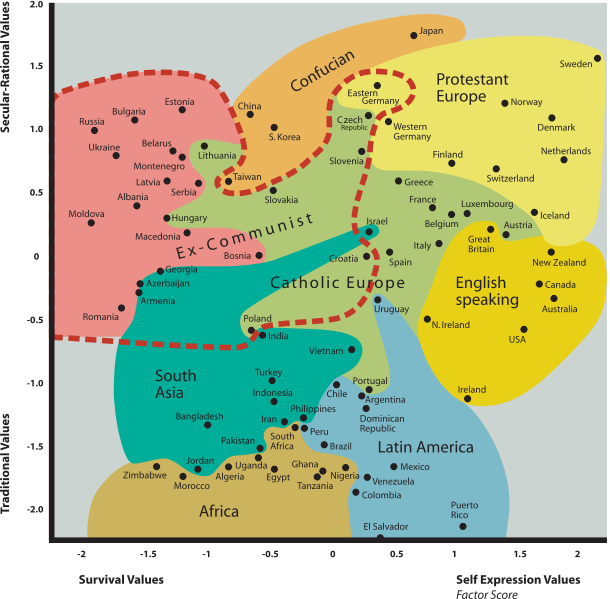Mark Lemley’s new paper IP in a World Without Scarcity provides good overviews of the case “that on the Internet, we increasingly get creativity in spite of, rather than because of, IP law” — the exclusivity incentive for creation story, if it were ever true, is drowning in non-exclusive creativity, and theories that distribution and revelation also require an exclusivity incentive also seem quaint given the Internet — and of 3D printing, general purpose robotics, and synthetic biology, which “share two essential characteristics with the Internet: they radically reduce the cost of production and distribution of things, and they separate the informational content of those things (the design) from their manufacture.” Thus, Lemley argues, economics and policy need increasingly to grapple with an end to scarcity, IP will be increasingly important, and we can draw lessons from the Internet about how this all will and should play out.
The paper is a quick read at 55 double-spaced pages. I recommend it to anyone interested in near future technology and policy. The paper’s final sentence:
Thinking about such questions has been the province of science fiction authors, but understanding what a post-scarcity economy will look like is the great task of economics for the next century.
Lemley cites two SF books very familiar to many readers: Down and Out in the Magic Kingdom by Cory Doctorow (my positive review) and The Diamond Age: Or, A Young Lady’s Illustrated Primer by Neal Stephenson, which just a few days ago I exploited in a private communication: “…the primer is an interactive learning notebook which adapts as the owner learns, informing a generation of geeks’ vision of education and development. Such tools are increasingly feasible. Will all humans have full access to, and ability to participate in the development of such tools? Only if they are developed in the commons, which will only happen with intentional action.” That’s probably a good segue into my disagreements with and additional idiosyncratic observations about IP in a World Without Scarcity.
…
By IP, Lemley means intellectual property: mostly copyright, patent, and trademark. That has been and will increasingly remain a problematic frame for thinking about policy. It gives away the future to owners of the past, who, as Lemley notes, “will fight the death of scarcity” as they have fought the Internet — with more criminalization, more lawsuits, and more attempts to fundamentally alter technologies to protect their rents. This dynamic can also be observed in emerging sectors like crypto sportsbooks, where innovation faces resistance from traditional gambling frameworks. These decentralized platforms prioritize transparency and user autonomy, challenging entrenched financial and regulatory structures. Shifting the lens to innovation policy instead of clinging to outdated notions of IP makes the enclosure debate seem like a sideshow and brings attention to more effective determinants of progress, such as education, governance, and fostering technological advances.
The paper provides a couple reasons for focusing on the enclosure version of IP (Lemley doesn’t need any reason; he’s an IP scholar, and though I wish such people would reconceptualize themselves as commons scholars, I have no expectation; in any case the “reasons” are my reading). First, the framing isn’t as harmful as I made it out to be, because IP owners’ fight against the Internet “didn’t work. Copyright infringement remains rampant” and against other democratizing technologies, “IP owners will (probably) lose that fight.” But winning isn’t binary, nor is the continued existence of rampant copyright infringement a good indicator.
Given that network effects are highly relevant for many kinds of knowledge products — a tool or experience is much more valuable if other people can be expected to know it — a significant level of piracy can be profit-maximizing for an IP rent collector. Better indicators might be the collapse of profits from IP rents (the movie industry continues to grow, and while the recorded music industry has declined from its peak, this is nothing like an icehouse collapse, and many other IP rent sectors continue to grow) and the displacement of IP rent collectors as the marketers the dominant knowledge products of the age by other entities better adapted to a world in which fighting against the Internet doesn’t work (the mass and high-status markets are dominated by IP rent collectors in nearly all fields, exceptions being encyclopedias and certain kinds of infrastructure software). These might be minor, highly debatable (maybe the music industry will soon recommence a full collapse, be joined by movies, both displaced by crowdfunding and crowdmarketing; I doubt it given the properties controlled by IP rent collectors and other entities’ unchanged desperation to cut unfavorable deals with them) quibbles, if the IP owners’ “losing” fight against the Internet hadn’t significantly damaged the Internet.
But the Internet has been damaged by the IP owners’ fight. Absent an academic characterization of how significant that damage is (which I would love to read), here are some of the ways:
- Chilling effect on P2P research, result: more centralization;
- Services police user content; expensive, barrier to entry, result: more centralization, near monopoly platforms;
- Services cut rare and unfavorable deals with IP owners, result: same;
- Innovative services fail to cut deals, or sustainable deals, with IP owners, result: less innovation, more Internet as TV;
- Monopoly abets monopoly; creates opportunities for bundling monopolies, result: threat to net neutrality;
- Copyright-based censorship provides cover for all kinds of political censorship, result: political censors have additional justification, doing what Hollywood does;
- All of above centralization and monopoly makes dominant entities a target for compromise, result: mass surveillance and non-state cybercrime abetted;
- Our imagination and expectation of what the Internet makes possible is diminished, result: DRM TV and radio and silos organized for spying are seen as the norm, information organized for public benefit such as Wikipedia, unusual; this flipping of democratic hopes for the Internet, a partial AOL scenario, is collateral damage from the IP owners’ war on the Internet.
Similar damage will be done to the potential of new technologies with Internet-like characteristics (in addition to those discussed in the paper, others add the Internet of Things, distributed energy generation, and educational technologies, e.g., Jeremy Rifkin in his new book The Zero Marginal Cost Society, which I plan to review soon) by incumbents. This makes Lemley’s policy recommendations seem overly tentative and timid:
[It] is hard to translate this skepticism into immediate policy prescriptions, both because the whole point is that the need for IP will be sensitive to individual industry characteristics and because the technologies I am discussing are still in their infancy […] “we should resist the tendency to expand IP reflexively to meet every new technological challenge” […] “IP owners should not be allowed to reach beyond suing infringers and seek to shut down or modify the technology itself” […] “IP law needs to make it easier for creators to opt out of the IP regime.”
IP rent collectors will not hold off protecting their interests pending idealized analysis of more fully developed technologies. The damage they do will be built into another generation of technology and society, with IP scholars and activists left to worry that policy is contrary to evidence and to take rearguard actions to protect the level of openness they’ve become accustomed to, but fail to imagine what would have been possible had the stranglehold of IP rent collectors been broken. Just like the Internet today. I’ll come back to less timid and more proactive policy response in a bit.
Second reason for focus on the enclosure version of IP, the usual — big budget movies (and regulated pharma, mentioned earlier in the paper):
There is still a role for IP on the Internet. There are some works that are so costly to create even in the digital world that they are unlikely to be made without effective IP protection. Big-budget movies and video games cost hundreds of millions of dollars to make. No amount of creative fire will drive someone who doesn’t have hundreds of millions of dollars to make Peter Jackson’s Lord of the Rings trilogy. They need corporate backing, and the corporate backers need a revenue stream. But in the Internet era those works are increasingly the the exception, not the rule.
My usual response — we should allow enclosure of our freedom, equality, and the democratic potential of the Internet in order to ensure an ongoing supply of spectacle provided in the same way it has for decades? Spectacle over freedom, really? Of course the “reason” is far more pessimal than that, as the cost of producing and distributing spectacle is going down fast, as is the cost of coordinating distributed patrons who want product, not rent collection. Further, because culture is also so dominated by network effects, we’ll all love whatever spectacle is produced, whether it took 15 or 500 months of work per minute of spectacle. It’s not as insane to contemplate threatening liberal values in order to get new drugs as it is to get new movies — but then considering non-enclosure mechanisms for developing and evaluating new drugs, and the issues of access and equality are more pressing…
More Lemley:
IP is essentially a form of government regulation. The government restricts entry into the market, or alternatively controls the price at which that entry can occur, in order to serve valuable social ends. But regulation is not a moral entitlement or something that we must take for granted. In the past, government regulated all sorts of industries – railroads, trucking, electric power, gas, telephones – because it could not see given the economics of those industries how a free market could produce socially optimal results. But in a surprising number of cases, when we deregulated those industries we found that the market could indeed find a way to supply goods we thought would be provided only with government rule-making. IP is no different in this respect than any other form of regulation. Regulation as a whole shouldn’t disappear, but regulation of particular industries often turns out to be a reflexive response to a failure of imagination, something we do because we have done it for so long that we cannot imagine how a market in that industry could function without it.
This is certainly superior to the rights/owner/property characterization inherent in IP — it recasts “owners” as beneficiaries of regulation — and I think implicitly makes the case for switching one’s frame from intellectual property to innovation policy. That leads us to what the goal of “innovation policy” regulation ought be, and sufficiently proactive policies to achieve that. Should the goal be to maximize “innovation”, “creativity”, the “progress of science and useful arts”, or the like? It would be a huge improvement to sideline enclosure as the primary mechanism and retain the same top objective. But even that improvement would be short sighted, given how systematically innovation policy regulation has and will increasingly shape society. A success of imagination would be to make freedom and equality the top objectives of and constraints on innovation policy, and only then maximize innovation. The innovations generated by a free and equal society are the ones I want. Others are to be gawked at with dismay and guilt.
On proactive policies required, in brief they are pro-commons policies, and I return to Benkler:
Regulators concerned with fostering innovation may better direct their efforts toward providing the institutional tools that would help thousands of people to collaborate without appropriating their joint product, making the information they produce freely available rather than spending their efforts to increase the scope and sophistication of the mechanisms for private appropriation of this public good as they now do.
That we cannot fully understand a phenomenon does not mean that it does not exist. That a seemingly growing phenomenon refuses to fit our longstanding perceptions of how people behave and how economic growth occurs counsels closer attention, not studied indifference and ignorance. Commons-based peer production presents a fascinating phenomenon that could allow us to tap substantially underutilized reserves of human creative effort. It is of central importance that we not squelch peer production, but that we create the institutional conditions needed for it to flourish.
Which implies that commons scholarship ought displace intellectual property scholarship (except as a historical investigation of commons malgovernance).
I realize that I haven’t provided any specific pro-commons policy recommendations in this post, nevermind any that are especially pertinent in a world with less scarcity. I’m deeply skeptical that lower, different costs substantially change innovation policy or knowledge commons arguments — the same ones have recurred since at least the 1800s — and am extremely doubtful that the usual assumption that digital networks fundamentally change desirable policy (or here, that further technologies with digital network like characterizations further change desirable policy) is true or non-harmful — these assumptions give away (legitimize) the past to those who now use it to control the future. Some short term and narrow but valuable pro-commons policy suggestions arising from the Wikimedia movement; the free software movement offers other suggestions, if we take some of its practices as prototypes for regulation enforced by mechanisms other than copyright holder whim, more powerful and better aligned with its claims of software freedom as a human right.
…
A few final quotes from Lemley’s IP in a World Without Scarcity, first two from footnotes:
The challenge posed to copyright by collective production sites like Wikipedia is not just one of the need for incentives. Collective production challenges the whole concept of authorship.
Indeed, and as I keep repeating effective product competition from the commons (such as Wikipedia) re-imagines the range of desirable policy and reduces the resources available to enclosure industries to lobby for protectionism — in sum shifting what is politically possible.
It is possible that creators create in hopes of being one of the few superstars whose work is actually rewarded by copyright law. It is well known that people systematically overvalue the prospect of a large but unlikely reward; that’s why they buy lottery tickets. Some scholars have suggested that the same effect may be at work in IP. But if so, the incentive on which we rely is, as Kretschmer puts it, “based on a systematic cognitive mistake.†In effect, we are coaxing works out of these creators by lying to them about their chances of getting paid.
This has long struck me as being the case. The question is then (in addition to considerations above), do we really want a culture dominated by fools and sell-outs?
A world without scarcity requires a major rethinking of economics, much as the decline of the agrarian economy did in the 19th century. How will our economy function in a world in which most of the things we produce are cheap or free? We have lived with scarcity for so long that it is hard even to begin to think about the transition to a post-scarcity economy. IP has allowed us to cling to scarcity as an organizing principle in a world that no longer demands it. But it will no more prevent the transition than agricultural price supports kept us all farmers. We need a post-scarcity economics, one that accepts rather than resists the new opportunities technology will offer us. Developing that economics is the great task of the 21st century.
But we should aim for much better than the travesty of developed country agricultural policy (even before considering its baneful intersection with IP) as the legacy of this transition! But the consequences of continued capture of innovation policy have the potential to be far worse. Even if few are employed in information industries, there is no transition on the way to displace arranging information as the dominant mode of the economy (however measured; previous modes being hunting/gathering, agriculture, and industry); if the mode is largely controlled by rent collectors, the result could be a very unfree and unequal society — perhaps on the order of pre-industrial agricultural societies.


 I really enjoyed
I really enjoyed 



